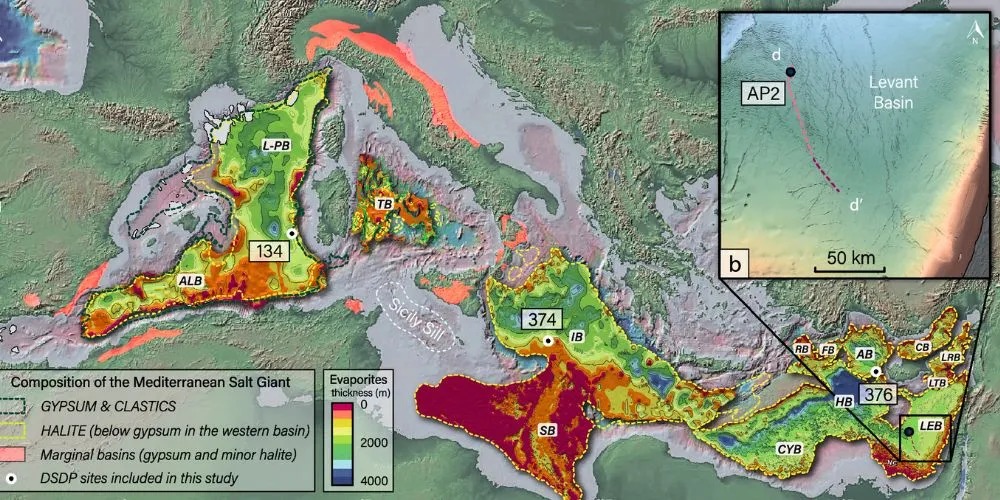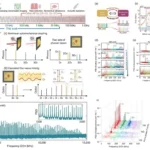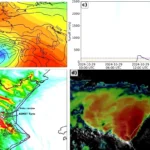Key Points
- The Mediterranean lost up to 70% of its water volume during the MSC, dropping by 1.7–2.1 km in the eastern basin.
- Salt accumulation occurred in two phases—initially in the eastern Mediterranean and later across the entire basin.
- The crust’s unloading due to water loss likely triggered localized volcanic activity.
- Chlorine isotope analysis provided critical insights into salt deposition rates and sea-level changes.
A groundbreaking study led by researchers from the CNRS has unveiled the dramatic scale of the sea-level drop in the Mediterranean during the Messinian Salinity Crisis (MSC), which occurred between 5.97 and 5.33 million years ago. This geological event transformed the Mediterranean into an expansive salt basin, leaving a layer of salt up to 3 kilometers thick.
The research utilized chlorine isotope analysis from salt samples extracted from the Mediterranean seabed to uncover the event’s dynamics. Two distinct phases of extreme evaporation were identified. In phase one (35,000 years), salt deposition was confined to the eastern Mediterranean due to restricted water flow from the Atlantic. The Mediterranean basin was filled with brine during this period, limiting salt accumulation to specific regions. In phase two (10,000 years), a rapid evaporative drawdown caused sea levels to plummet by 1.7–2.1 kilometers in the eastern basin and approximately 0.85 kilometers in the western basin. This phase saw salt accumulation across the Mediterranean and a dramatic loss of up to 70% of the basin’s water volume.
The consequences of this drastic sea-level reduction extended beyond the Mediterranean. The unloading of Earth’s crust triggered localized volcanic eruptions, and the enormous depression caused by the water loss may have influenced global climatic conditions.
Published in Nature Communications, the study provides new insights into the causes and effects of the MSC, a long-debated topic in geology. The findings also enhance our understanding of how extreme geological phenomena shaped the Mediterranean’s landscape and influenced Earth’s climate history.
This research highlights the Mediterranean’s significance as a natural laboratory for studying the interplay between geological events and environmental changes, offering a window into the evolution of regional and global ecosystems.




